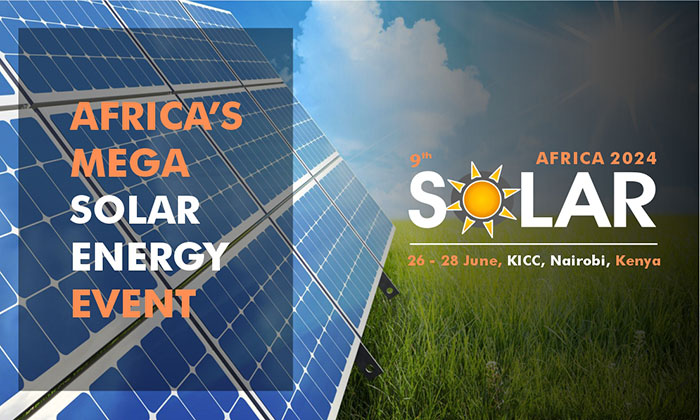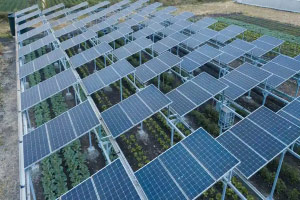

Kenya to Use Solar Panels to Boost Crops by 'Harvesting the Sun Twice'

Posted on :Wednesday , 30th March 2022
Solar panels are not a new way of providing cheap power across much of the African continent, where there is rarely a shortage of sunshine. But growing crops underneath the panels is, and the process has had such promising trials in Kenya that it was deployed in open-field farms.
Known as agrivoltaics, the technique harvests solar energy twice: where panels have traditionally been used to harness the sun’s rays to generate energy, they are also utilised to provide shade for growing crops, helping to retain moisture in the soil and boosting growth.
An initial year-long research collaboration between the University of Sheffield, World Agroforestry and the Kajiado-based Latia Agripreneurship Institute has shown promising results in the semi-arid Kajiado county, a 90-minute drive from the Kenyan capital of Nairobi and this week the full project will be officially launched.
For example, cabbages grown under the 180, 345-watt solar panels have been a 3rd bigger, and healthier, than those grown in control plots with the same amount of fertiliser and water.
Other crops such as aubergine and lettuce have shown similar results. Maize grown under the panels was taller and healthier, according to Judy Wairimu, an agronomist at the institute.
“We wanted to see how crops would perform if grown under these panels,†said Wairimu. But there is another pragmatic reason behind the technology: doubling up the output of the same patch of earth to generate power and cultivate food can go a long way towards helping people with limited land resources, she said.
According to Dr Richard Randle-Boggis, a researcher at the University of Sheffield’s Harvesting the Sun Twice project, the trial initiative will determine the potential of agrivoltaic systems in east Africa.
“We needed to build a test system to see if this technology will be suitable for the region,†Randle-Boggis said, reiterating that, unlike conventional solar mini-grid systems, agrivoltaics have the additional benefits of improving food and water security, while strengthening people’s resilience against the climate crisis, as well as providing low-carbon electricity.
The solar panels do not just reduce water loss from plants and the soil – their shade mitigates some of the stress experienced by plants due to high day temperatures and UV damage, Randle-Boggis said.
Please Select an Option

Expogroup
Expogroup is a full service exhibition organiser with over 28 years experience in International trade exhibitions. Our current portfolio includes 28 annual exhibitions from a diverse range of industries being held across the Middle East & Africa.
EXPOGROUP © 2025 | Privacy policy
